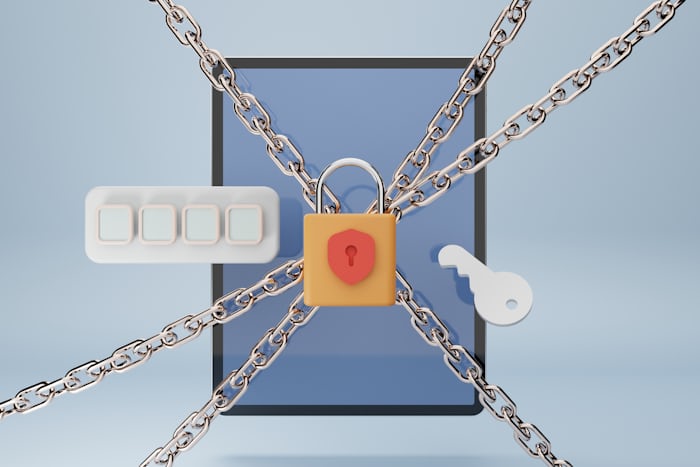
In today’s interconnected world, nearly everything we do leaves a digital footprint. From Browse social media to online banking, our personal information is constantly transmitted across the internet. With growing concerns about data breaches, cyber snooping, and targeted advertising, it’s no wonder more and more people are looking for ways to shield their online activities. This is where a Virtual Private Network, or VPN, comes into play.
You’ve likely heard the term “VPN” before, perhaps in an ad or mentioned by a tech-savvy friend. But what exactly is it, and how does this seemingly invisible tool actually protect your online privacy? Is it just for tech geeks, or is it something everyday internet users should consider? In this guide, we’ll demystify VPNs, explaining how they work to create a secure tunnel for your data and why they’ve become an essential tool for anyone serious about their online security.
Understanding the Vulnerability: Your Normal Internet Connection
First, let’s understand why you might need a VPN in the first place. When you connect to the internet without a VPN, your internet service provider (ISP) sees everything you do online. They can see which websites you visit, how long you stay there, and even what data you send and receive (unless the website uses HTTPS encryption, which is standard now but doesn’t hide which site you’re visiting).
Here’s what a typical non-VPN connection looks like:
- Your Device <–> Your ISP <–> The Internet (Websites/Services)
Your ISP acts as a gatekeeper, and anyone (including the ISP itself, governments, or hackers) with access to their logs can potentially see your activities. This is especially risky on public Wi-Fi networks (like at a coffee shop or airport), where malicious actors can easily intercept your data because the network often lacks strong encryption.
The VPN Solution: A Secure, Encrypted Tunnel
A VPN works by creating a secure, encrypted “tunnel” between your device and a server operated by the VPN service provider. Instead of connecting directly to the website or service you want to access, your internet traffic first goes through this secure tunnel to the VPN server.
Here’s the simplified process:
- Encryption: When you turn on your VPN, all your internet traffic (web Browse, app usage, downloads) is immediately encrypted. This scrambles your data, turning it into unreadable code.
- Tunneling: This encrypted data is then sent through a secure tunnel to a VPN server, which could be located anywhere in the world.
- IP Masking: When your encrypted data reaches the VPN server, the server then decrypts it and sends it on its way to the website or online service you requested. Crucially, the website or service now sees the IP address of the VPN server, not your actual IP address. This effectively masks your real location and identity.
- Secure Return: The response from the website then travels back through the VPN server, gets re-encrypted, and is sent back to your device through the secure tunnel.
So, with a VPN, your connection looks more like this:
- Your Device <–> Encrypted VPN Tunnel <–> VPN Server (New IP Address) <–> The Internet
Key Ways a VPN Protects Your Online Privacy:
- Encrypts Your Data: This is perhaps the most critical function. By encrypting your internet traffic, a VPN makes it extremely difficult for anyone to intercept and read your data. This is invaluable when you’re on unsecure public Wi-Fi networks, protecting your passwords, banking details, and personal communications from prying eyes.
- Hides Your IP Address: Your IP address can be used to track your online activities and pinpoint your general geographical location. A VPN masks your real IP address with that of the VPN server. This adds a significant layer of anonymity, making it harder for websites, advertisers, and snoopers to build a profile of your online behavior.
- Bypasses Geo-Restrictions: Because a VPN allows you to appear as if you’re Browse from the location of the VPN server, you can sometimes access content or services that are restricted to certain regions. This is why many people use VPNs to access streaming libraries from other countries.
- Secures Public Wi-Fi: As mentioned, public Wi-Fi networks are often unsecured and ripe for malicious activity. A VPN encrypts your connection on these networks, ensuring that even if a hacker is monitoring the network, they can’t make sense of your data.
- Prevents ISP Throttling and Monitoring: Your ISP might slow down (throttle) your internet speed for certain activities like streaming or gaming. By encrypting your traffic, a VPN makes it harder for your ISP to see what you’re doing, potentially preventing throttling. It also prevents them from easily monitoring and logging your specific Browse habits.
Is a VPN Right For You?
While no single tool guarantees absolute anonymity online, a VPN is a powerful and essential component of a comprehensive online privacy and security strategy. It’s not just for those with extreme privacy concerns; it’s a practical tool for anyone who:
- Uses public Wi-Fi regularly.
- Wants to protect their Browse history from their ISP.
- Wants to bypass geo-restrictions for content.
- Needs an extra layer of security for sensitive online activities.
Choosing a reputable VPN provider is crucial, as they will be handling your encrypted traffic. Look for providers with strong “no-logs” policies, robust encryption, and a good reputation for security and customer service.
In an age where our digital lives are constantly under scrutiny, a VPN acts as your personal online bodyguard, providing peace of mind and significantly enhancing your control over your online privacy. It’s an easy-to-use technology with profound benefits for your digital well-being.
